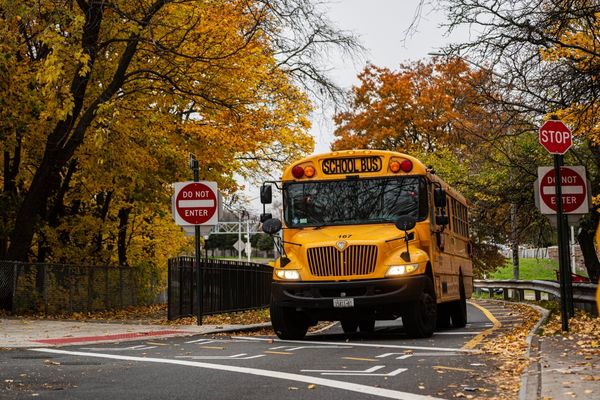
In what passes for the national conversation, our social care crisis tends to be reduced to a handful of factors so familiar they now feel like cliches. Just about all of them are centred on older people, the pressures on financially broken local councils from an ageing society and people having to sell their homes to pay for residential care. All these things, of course, are urgent and hugely significant – but they exclude a huge part of society for whom care is just as important. The reason why that happens is not hard to work out: it reflects a set of ingrained, almost Victorian prejudices – and, without wanting to sound too melodramatic, the last frontier of the struggle for human rights.
Just under 50% of care spending in England goes on support for disabled adults of working age, and more than two-thirds of that money is dedicated to people with learning disabilities. What this part of the social care picture has in common with help for older people is pretty clear: years of austerity, recruitment problems tied to low-paid jobs (made worse by Brexit), and the endless failures of successive governments to tackle a huge list of systemic problems. But the failings of care for disabled people have their own specifics: nonexistent local planning for the transition from childhood to life as an adult, no conception of successful grownup lives that does not involve paid work, and a national habit that is completely toxic: shutting away far too many disabled people, to the point where they simply cannot participate in society.
Consider a few simple questions. If you are not disabled and you regularly go to a yoga class, choir practice, a book group or just the pub, when was the last time you did so with even a single disabled adult present? As much as the crisis in special educational needs is huge and pressing, does it ever feel as if it also highlights a complete avoidance of issues to do with the grownups that children involved inevitably turn into? And particularly when it comes to people with learning disabilities, why is it that even self-consciously progressive people have almost no conception of who they are, what they need and how badly they tend to be treated?
Earlier this month, an insightful report titled What comes after education? was jointly published by two charities that provide care and schooling, Together Trust and National Star. It was about young disabled adults, and it painted a picture of thousands of twentysomethings who are frequently not living where they want, and regularly “experience loneliness and isolation and wait too long for the right support”. This boils down to a chronic lack of services, housing and opportunities, and people “being stuck at home with little or no community access and causing incredible stress and anxiety for the young person and their loved ones”.
When the report was launched at the Houses of Parliament, the assembled crowd heard a speech by Elliot Caswell, a 25-year-old from Newcastle who has cerebral palsy and a hearing impairment, and is brimming with aspiration. He talked about basic things that have been bafflingly lacking from his life – wheelchair-accessible houses and supported employment – and about the people “not interested in sorting things out”. He also bluntly described the realities of his everyday experience: “I now live with a 62-year-old man who has very different needs to me and cannot talk. During the week we are expected to spend 66 hours with one support worker – we have nothing in common, [and] if it wasn’t for family I would be unable to go out more than twice a week.”
After I read the report, I had a long conversation with the mother of a 23-year-old disabled woman who had tried to kickstart planning for her daughter’s entry into supported living back in 2020, knowing that these things demand a huge amount of preparation. Promising openings came and went, and her daughter ended up living in a coastal town, in accommodation once used for holiday lets. The organisation in charge of her care soon refused to accompany her on any activities beyond a few bog-standard excursions – which brought an end to her sessions at a boxing gym and drama group, as well as everyday shopping trips and even medical appointments.
“She was incredibly withdrawn,” her mum told me. “We suddenly realised that she was spending more and more time just in her room, on her tablet.” Finally, she is about to move into supported living with three other young people and what looks like proper help, but her mum says “she feels like she’s waiting for her life to start”.
Cuts are a big part of the story here, but there are basic failures of administration that predate austerity. Every council ought to know pretty much the exact number of disabled young people who will leave education in any given year, and plan accordingly. Most of the time, this fails to happen. Meanwhile, the cultural gaps and prejudices that sit behind these shortcomings fester on. Beyond early adulthood, there is no official conception of, say, learning-disabled people in their 40s and 50s, and how they can lead fulfilled lives. Cases of abuse and neglect – and incarceration – in care homes and so-called assessment and treatment units have mounted. In other areas of policy that are just as crucial, you see the same grim official attitudes: witness the fact that while pensions remain sacrosanct, the government is set on new cuts to disability benefits.
I recently spoke to Lizzi Ussher, another mum who has fiercely fought for one of her children’s basic rights. David is now 28 – he was one of triplets, and he was born with cerebral palsy. As she explained, some young people with special needs manage to remain in education until their early or even mid-20s, but for David, a break point came at 18, when he went into residential care, paid for by his local council.
“The people there were inept,” she said. The pads that are needed because of his incontinence hadn’t been changed often enough, and it took two years for his skin to recover; he needed hoisting from his wheelchair to his bed, but not enough staff knew how to do it. He now lives at Foundation House, a renowned residential care facility in Gloucester. “He goes for a walk every day. They go into town a lot. The other day, they all went out and had lunch. They go to karaoke sessions.” He has recently been to see such bands as Coldplay and Kings of Leon: in short, his life and his involvement in the world have immeasurably improved.
Towards the end of our conversation, Ussher said something very sobering: “When people get to 18, it’s like being sent in a tiny little boat, out to sea. It’s just terrifying.” As the father of a young adult who is autistic and goes to a specialist school, I know exactly what that means, and the sheer scale of the problems it describes. The fundamental issue is not just that we have not acted on this seemingly constant crisis. It is that most of us are not even aware of it.
John Harris is a Guardian columnist. His memoir Maybe I’m Amazed, about his autistic son James and how music became their shared language, is published in March. For more information, visit maybeimamazed.substack.com







